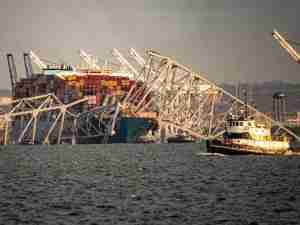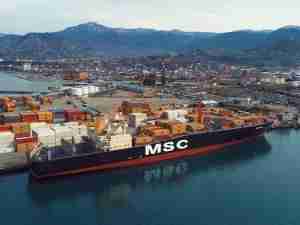Federal and international law requires that all ships follow pollution regulations that include proper disposal of oily water through an Oily Water Separator on board the vessel. Large vessels generate oily water waste when water mixes in the bottom of the vessel (the bilge), with oil leaked and dripped from the machinery and the engines' lubrication and fuel systems. Such oily bilge waste may properly be disposed of by off-loading it to a licensed hauler and disposal facility at port for a fee, or by discharging it overboard after the oil is separated out in the Oily Water Separator. Federal law further requires ships to accurately record each disposal of oily bilge water in an Oil Record Book and to have the Oil Record Book available for the US Coast Guard (USCG) within the internal waters of the United States.
"This case is an example of the Department's continued determination to protect our oceans from marine pollution," said Ronald J. Tenpas, Assistant Attorney General for the Justice Department's Environment and Natural Resources Division. "We take very seriously our shared responsibility with the Coast Guard and EPA to ensure that the international MARPOL treaty and federal pollution laws are vigorously enforced against those in the international shipping industry who fail to follow the rules."
"These laws exist for the protection of our environment and are not 'guidelines' to be followed at someone's whim," said US Attorney Meehan. "This chief engineer and, by extension, the ship's operator took shortcuts that are unacceptable because of the negative impact on our waterways."
"The company and chief engineer used the ocean as a dumping ground for waste oil and tried to cover that up," said David M. Dillon, Special Agent-in-Charge, EPA, Criminal Investigation Division. "Those who violate the law and pollute the ocean will be vigorously prosecuted."
"The Coast Guard is committed to aggressive enforcement of US laws and international requirements designed to prevent pollution at sea," said Captain Dave Scott, Commander, USCG Sector Delaware Bay. "We thoroughly investigate credible reports of alleged illegal discharges of oil and/or tampering with shipboard anti-pollution equipment or falsifying oil discharge records. We work closely with appropriate state and other federal law enforcement agencies to prosecute environmental crimes, to promote compliance with these important environmental protection statutes."
On or about Jan. 25, 2008, the M/V MSC Uruguay arrived in the Port of Philadelphia, within the internal waters of the United States. Based in part on a letter from some of the crewmembers of the ship, the USCG conducted an inspection of the ship and discovered evidence indicating that the M/V MSC Uruguay discharged bilge waste directly overboard on or about Dec. 2, 2007, Jan. 3, 2008, and Jan. 4, 2008. The discharges were made using a hose to bypass the vessel's pollution prevention equipment, specifically the Oily Water Separator. The information further alleges that on or about Jan. 25, 2008, the M/V MSC Uruguay presented the ship's Oil Record Book to the USCG, and the Oil Record Book falsely indicated the bilge waste was properly processed through the ship's pollution prevention equipment on Dec. 3, 2007, and Jan. 4, 2008.
RKS agreed to pay a $1,000,000 fine and $200,000 to the National Fish & Wildlife Foundation as community service. RKS further agreed to a three-year period of probation and to implement an Environmental Compliance Plan as a condition of probation.
The case was inves









